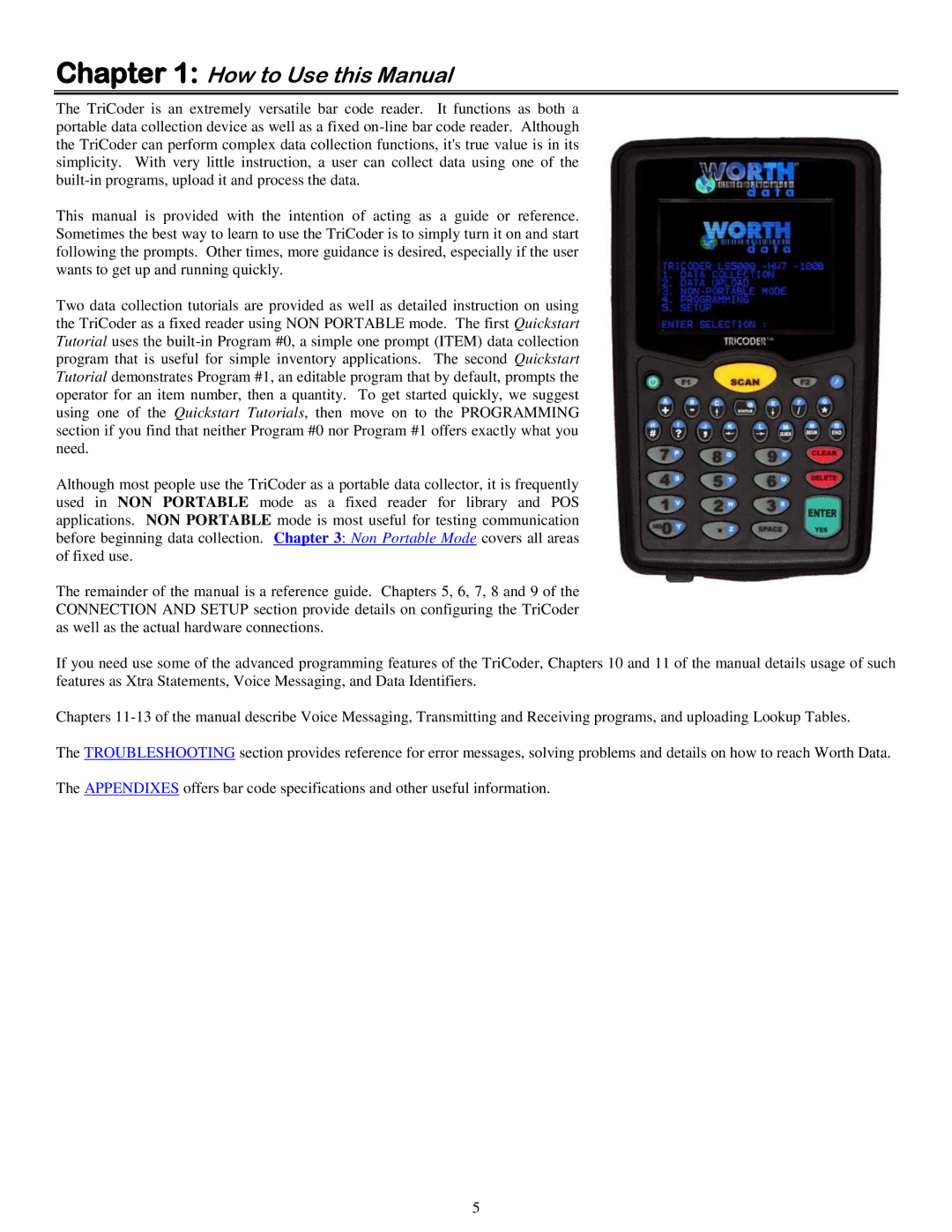
Chapter 1: How to Use this Manual
The TriCoder is an extremely versatile bar code reader. It functions as both a portable data collection device as well as a fixed
This manual is provided with the intention of acting as a guide or reference. Sometimes the best way to learn to use the TriCoder is to simply turn it on and start following the prompts. Other times, more guidance is desired, especially if the user wants to get up and running quickly.
Two data collection tutorials are provided as well as detailed instruction on using the TriCoder as a fixed reader using NON PORTABLE mode. The first Quickstart Tutorial uses the
Although most people use the TriCoder as a portable data collector, it is frequently used in NON PORTABLE mode as a fixed reader for library and POS applications. NON PORTABLE mode is most useful for testing communication before beginning data collection. Chapter 3: Non Portable Mode covers all areas of fixed use.
The remainder of the manual is a reference guide. Chapters 5, 6, 7, 8 and 9 of the CONNECTION AND SETUP section provide details on configuring the TriCoder as well as the actual hardware connections.
If you need use some of the advanced programming features of the TriCoder, Chapters 10 and 11 of the manual details usage of such features as Xtra Statements, Voice Messaging, and Data Identifiers.
Chapters
The TROUBLESHOOTING section provides reference for error messages, solving problems and details on how to reach Worth Data.
The APPENDIXES offers bar code specifications and other useful information.
5
